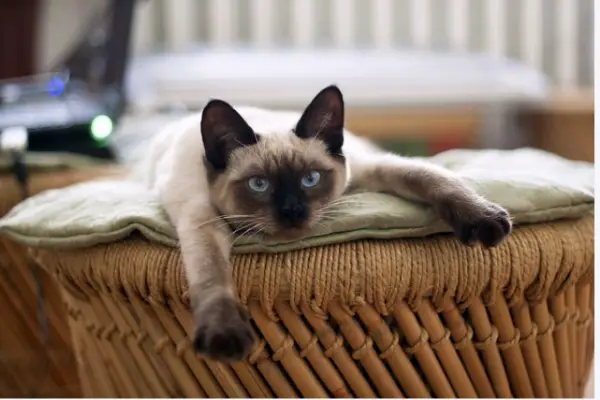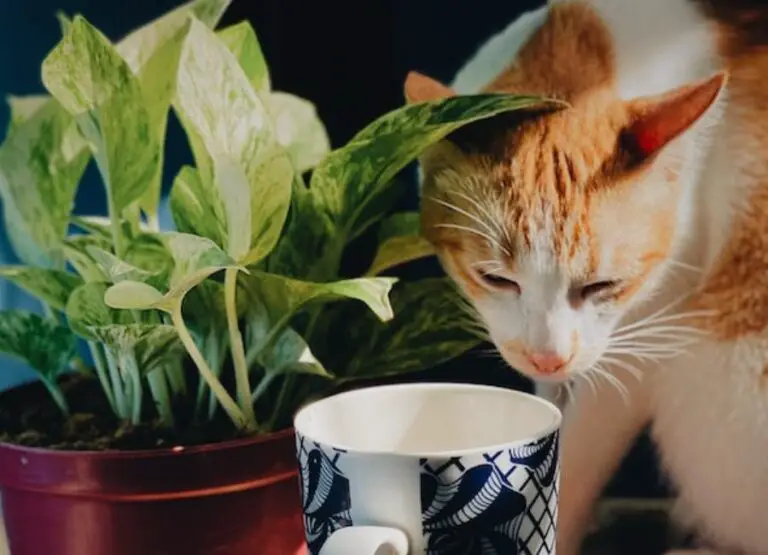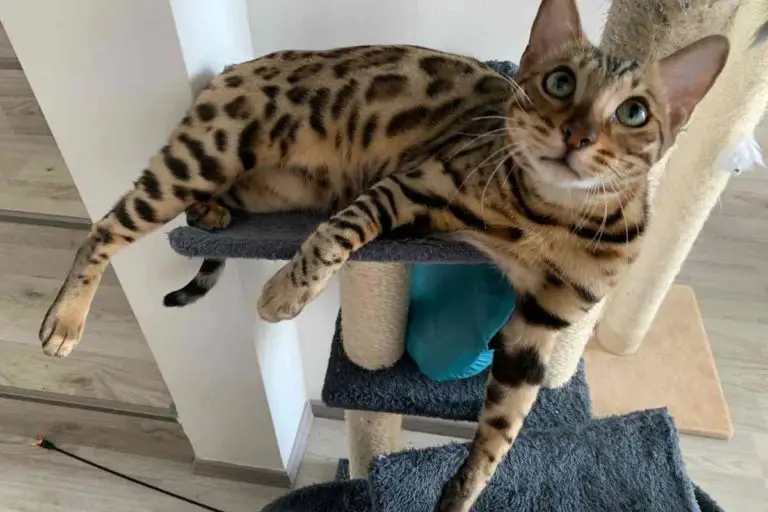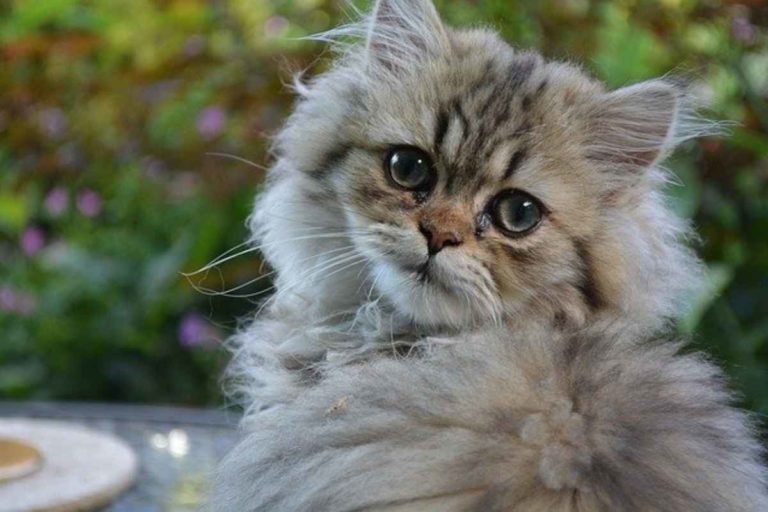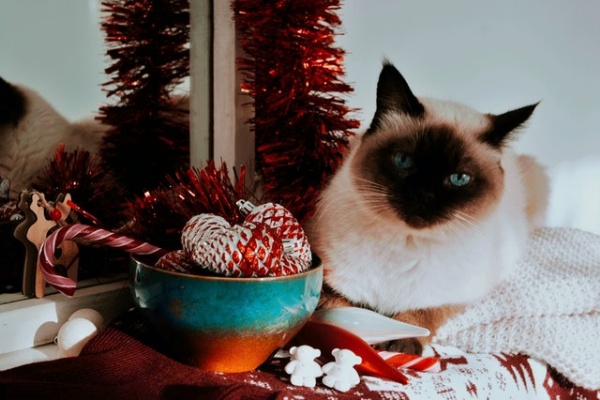Do Mainecoon Cats Shed (13 Shedding Control & Causes)
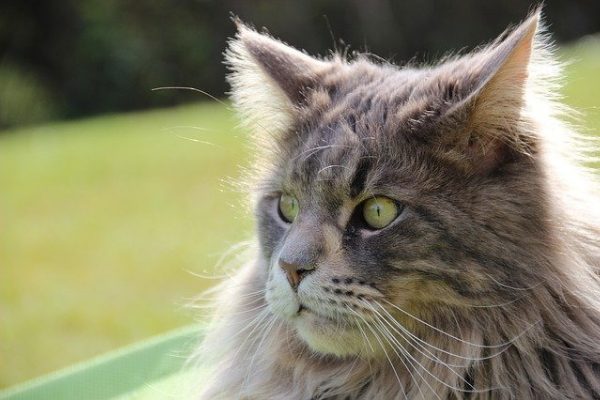
Most cat lovers hate to see cat hair on their clothes and furniture, the question is now Do Mainecoon Cats Shed! Knowing that Mainecoons are the most popular breeds!
As an experienced cat owner who has been with cats for many years, I will outline the common things that can trigger shedding in Mainecoons.
I will also outline some common control measures to apply so that you reduce shedding as much as possible, so be sure to read through.
Mainecoons are large cats with heavy bones and a bushy double coat that sheds only once or twice per year.
Their coat consists of long hair that can be straight or wavy and comes in many different colors including browns, grays, tans, white, black silver, and seal points.
They make excellent pets due to their gentle disposition and intelligence. In this blog post, I will cover the basics about Mainecoons and shedding.
However, these cats are very sensitive to hot environments so they do best in cool climates.
Do Mainecoon cats shed
Mainecoon cats lose a lot of fur as a result of changing temperatures and climates, which might be seasonal, year-round, or just a few times a year.
Mainecoons do not shed any more than any other cat, but the amount of fur they have in contrast to most other cats may give the impression that they do.
The amount of shedding a cat generates is influenced by nutrition, heredity, temperature changes, and sunlight exposure.
Regular combing and brushing will assist to reduce the impact of your Mainecoon’s shedding by removing hairballs and mats.
This makes them perfect for cuddling with on cold winter nights! However, they do shed quite a bit.
Shedding is natural and necessary for cats to maintain their healthy coat.
In order to manage this cat shedding effectively, you should brush your cat regularly and groom them during shedding season (which starts from April), but make sure to use the right tools.
Mechanism of shedding in cats
To adjust to variations in body temperature induced by solar hits, a cat’s brain sends instructions to its hair follicles which trigger off shedding.
Cats generate short, fluffy secondary hairs that act as insulation when their body temperature decreases due to a lack of sunlight.
When their body temperature rises owing to increased sunlight, cats shed to have a lighter summer coat.
Indoor cats exposed to less natural light and more artificial light may lose track of seasonal changes, resulting in year-round shedding.
A good diet, plenty of activity, and regular grooming may all help keep your cat healthy and happy, but shedding is an unavoidable part of the fur life cycle, and you’ll simply have to accept it.
What causes excessive shedding in Mainecoon cats
Unsubstantial diet, parasites, cat allergies, stress, anxiety, and sudden rise in body temperature of a cat are the major causes of excessive shedding in a Mainecoon cat.
These are not the only cause of excessive shedding in Mainecoons, but are the most common causes.
Here is the list of the common causes of excessive shedding in Mainecoon cats, which are as follows:
- Increased body temperature
- Allergies
- Kidney disease
- Thyroid issues
- Excessive stress
- Fleas attack
- Genetics
- Side effects of medication
- Anxiety
- Adrenal issues
- Lice attack
- Poor Nutrition
- Bacterial infections
- Fungal infections
- Cancer
- Climate and humidity
- Ticks attack
- Liver conditions
- Lack of Grooming
- Season
- Worm attack
- Mites attack
- Skin diseases.
As you can see from the list, there are a lot of things that cause shedding in Mainecoons, most of which can be controlled.
Keeping reading we will get to how you can control shedding in Mainecoons.
What age do Mainecoon cats start shedding
Mainecoons can start molting as early as 13 weeks of age, although this varies from cat to cat, and some Mainecoons do not shed until they are a year or two old.
Mainecoons shed all year after they reach the age of two, and there is no set time when they cease.
Ways to reduce or control shedding in Mainecoons
Here are some common steps or ways to reduce shedding in Mainecoon cats:
Weekly brushing reduces shedding in Mainecoons
Weekly brushing in the direction of hair growth can help remove excess undercoat and reduce shedding.
Brushing once a week will also help to avoid matting, which can contribute to increased shedding.
Brush in the direction of hair development using a slicker brush, pin brush, or comb with wide-set bristles where it looks comfortable for the cat, and you should notice a difference in less than a month.
Brushing your Mainecoon cat’s fur on a regular basis is recommended.
If that isn’t possible, make a weekly session with your cat a priority.
You should also make an effort to create positive associations, and you should try to reward yourself at the conclusion of a grooming session.
Here are the two most recommended brushes for your Mainecoon cat:
Avoid and control parasite attacks
Not only can fleas, ticks, and other parasites make your Mainecoon miserable, but they will also degrade the quality of their coat.
Flea bites may cause a lot of hair loss as well as unpleasant and irritated skin if scratched constantly.
Make an appointment with your veterinarian to discuss effective flea and tick control options.
Here are some common ways your Mainecoon cat can get worms or other parasites:
- Mainecoons can get worms from ingesting fleas.
- Mainecoons can get worms from a mosquito bite (heartworm).
- Mainecoons can get worms from eating a worm infected mouse.
- Mainecoons can get worms from unkept litter boxes.
- Mainecoons can get worms from chasing an infected rodent.
- Mainecoons can get worms from eating worm larvae.
- Mainecoons can get worms from unkept human footwear.
- Mainecoons can get worms from potted plants around your home.
- Mainecoons can get worms from unkept small flower gardens.
Pay attention to the quality of your Mainecoon cat food
Keep a watch on the food your Mainecoon cat eats.
A well-balanced diet supports healthy skin and minimizes shedding in any pet.
A Mainecoon requires nutritious, well-balanced cat food.
Your cat’s coat quality is primarily affected by how well you feed it.
Provide well-balanced food for your Mainecoon.
This helps her keep even little hair shedding on the inside to a minimum.
If she consumes a cat food rich in Omega-3 fatty acids, oils, and minerals, her hair and skin will be as smooth and healthy as possible.
Always talk to your veterinarian about the type of food you give to your Mainecoon.
Bathe your Mainecoon cat once every month or two
Bathing your Mainecoon may seem excessive, but it will significantly minimize hair loss in your house since it is a highly effective method of removing dead hair from the cat’s fur.
Bathe your cat once or twice a month. Use our unique shampoo and conditioner formulated with natural ingredients like tea tree oil and oats to give your cat a bath.
This will get rid of stray hair before it falls out. Always talk to your veterinarian about the best shampoo to use or take your cat to a professional groomer.
Pay attention to Mainecoon cat allergies
One of the most important things you can do to keep your Mainecoons from shedding excessively is to address allergies.
Allergic reactions in Mainecoons can be triggered by a number of things. Allergies to pollen, mold spores, dust mites, and shed skin cells are common.
Keep a watch-out for skin and hair concerns in your Mainecoon cat since food allergies can present themselves in the form of skin diseases or hair loss.
Symptoms of allergic reaction in Mainecoon cats
Here are some typical signs that your Mainecoon cat is sensitive to food or certain materials:
- Constant sneezing
- Continues vomiting
- Runny eyes
- Itchy ears
- Runny nose
- Frequent licking
- Usual diarrhea
- Swollen face
- Skin chewing.
Always practice regular healthy hygienic processes
Good cleanliness practices are only a preventative measure to aid Mainecoon cats in avoiding unnecessary shedding.
Follow these hygiene tips to keep your Mainecoon from shedding:
- Make sure your Mainecoon cat gets fresh water at all times.
- It’s critical to change your Mainecoon’s drinking water on a regular basis.
- Keeping your Mainecoon feeding bowls clean is important.
- Because the footwear is unkept, removing your shoes enables your Mainecoon to avoid being ill from worms.
- It’s not a good idea to let your Mainecoon use unclean litter boxes.
- Keeping the floor of your home clean.
- Allowing no access to your Mainecoon’s long-term waste.
Try Omega-3 Shedding Supplement
Omega-3 shedding supplements have been shown to assist Mainecoons shed, but you should see your veterinarian before doing so.
Omega-3 fatty acids are beneficial to your Mainecoon’s eyesight as well as containing components that maintain your skin healthy.
Before purchasing any Omega-3 Shedding Supplement, check your veterinarian for product recommendations.
Avoid dehydration of your Mainecoon
Mainecoons should always have access to water.
This is critical because cats with little water intake have dry skin and hair, which leads to excessive molting.
Maintaining a clean and full water bowl for your cat reduces the chance of hazardous germs being swallowed.
Mainecoons pat their water dishes to verify that they are drinking only clean water.
Avoid giving table scraps or stale food to Mainecoons
Table scraps are insufficient for Mainecoons, who may have stomach discomfort and excessive shedding as a result.
Do you know that cleaning up table crumbs on the floor might give your Mainecoon cat a bacterial infection?
Allowing your Mainecoon to eat off the ground is not a smart idea; instead, feed your Mainecoon from a clean container.
Don’t allow your Mainecoons pull items off the table when you’re eating, and if they do, don’t let them.
The stomachs of Mainecoon cats are sensitive, and stale food or table scraps might cause them to vomit.
Keep the body temperature of your Mainecoon low
Because shedding is aided by a warm atmosphere, if you have central heating, your Mainecoon will shed more regularly.
This is because its coat will make it appear as though it is summer when it is not.
Are you aware that temperature has a significant impact on abrupt cat color changes?
And this has an indirect effect on your Mainecoon shedding.
As a result, do not expose your Mainecoon cat to temps above 28-30.2° C to decrease shedding.
Try vacuuming your house regularly
Vacuuming or blowing your ragdoll is also a good alternative for Mainecoon shedding.
This procedure will remove dead skin and dirt from your Mainecoon’s body.
Although a vacuum cleaner or blower is an expensive purchase, you will discover that you utilize it for a variety of purposes around the house.
If you’re thinking about purchasing a vacuum cleaner, be sure to stock up on some tasty treats to help you clean your Mainecoon.
Schedule regular medical check-ups
When it comes to how to keep Mainecoons from shedding, this is an important step to take because they might shed for a variety of reasons.
Always consult a veterinarian and get your Mainecoon checked on a regular basis.
Shedding is linked to a variety of health issues, including the following:
- Kidney disease
- Thyroid issues
- Bacterial infections
- Fungal infections
- Cancer
- Liver conditions
Avoid excessive stress and anxiety
Your cat will shed more hair than normal if it is nervous or agitated.
They may also over-groom themselves, resulting in bald patches or skin discomfort.
Stress can cause unnecessary excessive shedding in Mainecoons, so avoid all form of stress.
Let me recap before we go!!!
How to stop Mainecoon cats from shedding excessively;
- Regular grooming
- Pest control
- High quality cat food
- lower Mainecoon’s body temperature
- Avoid table scraps
- Avoid unnecessary dehydration
- Avoid allergies
- Try Omega-3 Shedding Supplement
- Practice healthy hygienic processes
Wrapping up on do Mainecoon cats shed
Dealing with the shedding of a Mainecoon Cat is one of the most difficult aspects of owning one.
If you own a Mainecoon Cat, you’ve probably noticed that they shed a lot.
It’s not only inconvenient, but it might also harm your furniture and carpeting!
However, if you are willing to put in some time and effort to care for your pet, you will find yourself living in a furball-free house.
Make sure to keep the body temperature of your Mainecoon cat as low as possible and also prevent parasite attacks.
Above all, give your Mainecoon cat high-quality food with the help of your veterinarian!!

